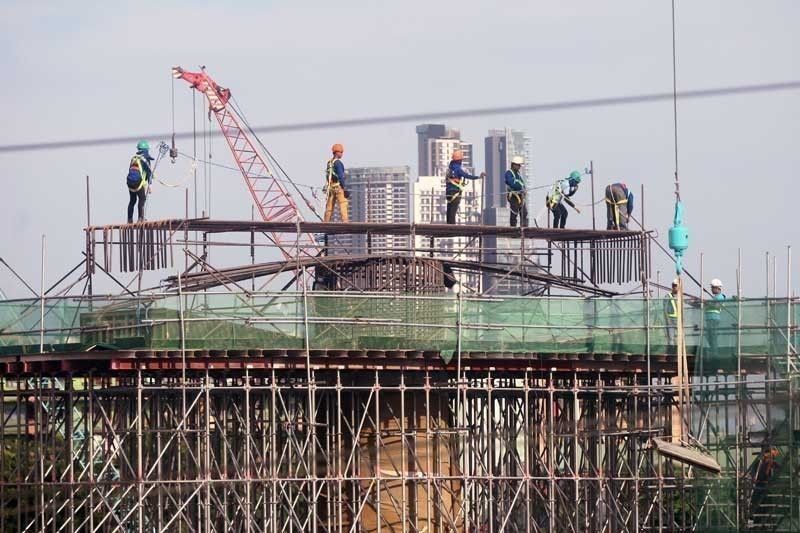Commentary: Resolving right of way issues on road projects

Before the House of Representatives adjourned for its month-long break, the House Committee on Metro Manila Development (MMD) conducted a hearing on the status of Metro Manila’s Build Build Build (BBB) projects, particularly the NLEx-SLEx Connector Road an eight-kilometer, four-lane elevated expressway traversing the Philippine National Railway right of way (ROW) from Caloocan to Manila.
The North Luzon Expressway (NLEX) runs 97 kilometers from Balintawak, Quezon City to Sta. Ines, Mabalacat City, Pampanga. Connecting Metro Manila to the northern provinces of Bulacan and Pampanga is the 94-km SCTEx expressway crossing the provinces of Bataan, Pampanga and Tarlac.
Going south, The South Luzon Expressway (SLEX), links Metro Manila to the provinces of the Calabarzon region.
The NLEX-SLEX Connector Road project, a Public-Private Partnership originated from the previous administration, aims to decongest traffic in the nation’s capital by providing an alternative route for EDSA and C-5 roads and cut the travel time between the NLEX and SLEX expressways from one hour to 15 to 20 minutes.
Metropolitan Manila Development Authority estimates traffic volume along EDSA at 385,000 vehicles a day which is 140,000 over its capacity of around 245,000 vehicles a day. Automotive sales despite higher taxes are not slowing down with over 195,000 units sold in the first half of 2019. All of them will certainly drive thru EDSA.
The eight-kilometer NLEX-SLEX connector road project is projected to decongest EDSA by some 50,000 vehicles a day. Combined with other ongoing road projects, MMDA estimates that EDSA traffic will be reduced by more than 150,000 vehicles daily.
Going back to the MMD house Committee hearing, affected residents led by the Sampaloc People’s Alliance and the local Catholic community objected to the project itself and proposed a different alignment that would traverse a supposedly shorter, less intrusive path.
The residents also complained that a big percentage or no less than 3,500 affected families are not informal settler families. As a matter of fact, they said that many affected residents live in formal housing structures such as townhouses and apartments.
On the other hand, the connector road’s project proponent Manila North Tollways Corporation said that the real value of the project is in the traffic decongestion of Metro Manila by providing a most efficient route between north and south of the nation’s capital, and encouraging greater productivity within the wider economic corridor of Metro Manila, Central and Southern Luzon.
The congressional hearing ended with hopeful commitments from all parties that all proposals will be considered and socialized housing will be delivered to affected families.
These discussions on housing issues vis-a-vis infrastructure development have become all-the-more familiar given the volume of infrastructure projects being undertaken in the last three years.
Nonetheless, it remains to be the commitment of President Rodrigo Duterte that infrastructure projects should incorporate the policy of “no demolition without relocation,” such that affected families within ROW areas are assured that no demolition teams will be deployed if housing agencies fail to comply with the president’s mandate for socialized housing.
This commitment includes affected families within ROW areas living in formal housing structures, which will be addressed either through direct negotiation or expropriation proceedings.
On the other hand, the president’s promise assures informal settler families that not a single family will be left on the streets. Housing agencies and local government units are mandated to conduct census activities to determine conclusively the exact number of families affected by infrastructure projects.
Urban poor and neighborhood associations within ROW areas should actively participate at the earliest possible time because housing agencies have different interpretations on who should benefit from the government’s socialized housing commitments.
In previous infrastructure projects, housing agencies and LGUs have carried out the questionable practice of only considering structure-owners as housing beneficiaries, despite having no legal basis in Republic Act 7279 or the Urban Development and Housing Act (UDHA).
The UDHA mandates that adequate relocation is an indispensable requirement for all affected families, with no distinction being made on whether affected families are structure-owners, house-renters, or house-sharers.
In fact, housing agencies and LGUs should actively monitor professional squatting syndicates in ROW areas, particularly if several units or spaces are being rented out to different families.
Indeed, ROW acquisition is a very complicated and exhaustive process. This is the phase in the project implementation which is exposed to most setbacks and delays.
However, this is a process that should admit no shortcuts, because the lives and future of thousands of affected families are at stake.
With the close coordination of Congress in the implementation of the administration’s BBB projects, the housing agencies tasked with implementing the president’s policy of “no demolition without relocation” must be able to deliver this commitment to all families affected by these infrastructure projects.
Terry Ridon is a fellow on infrastructure at Stratbase ADR Institute and a convenor at Infrawatch PH. He was a former chairman of the Presidential Commission for the Urban Poor.
- Latest





























